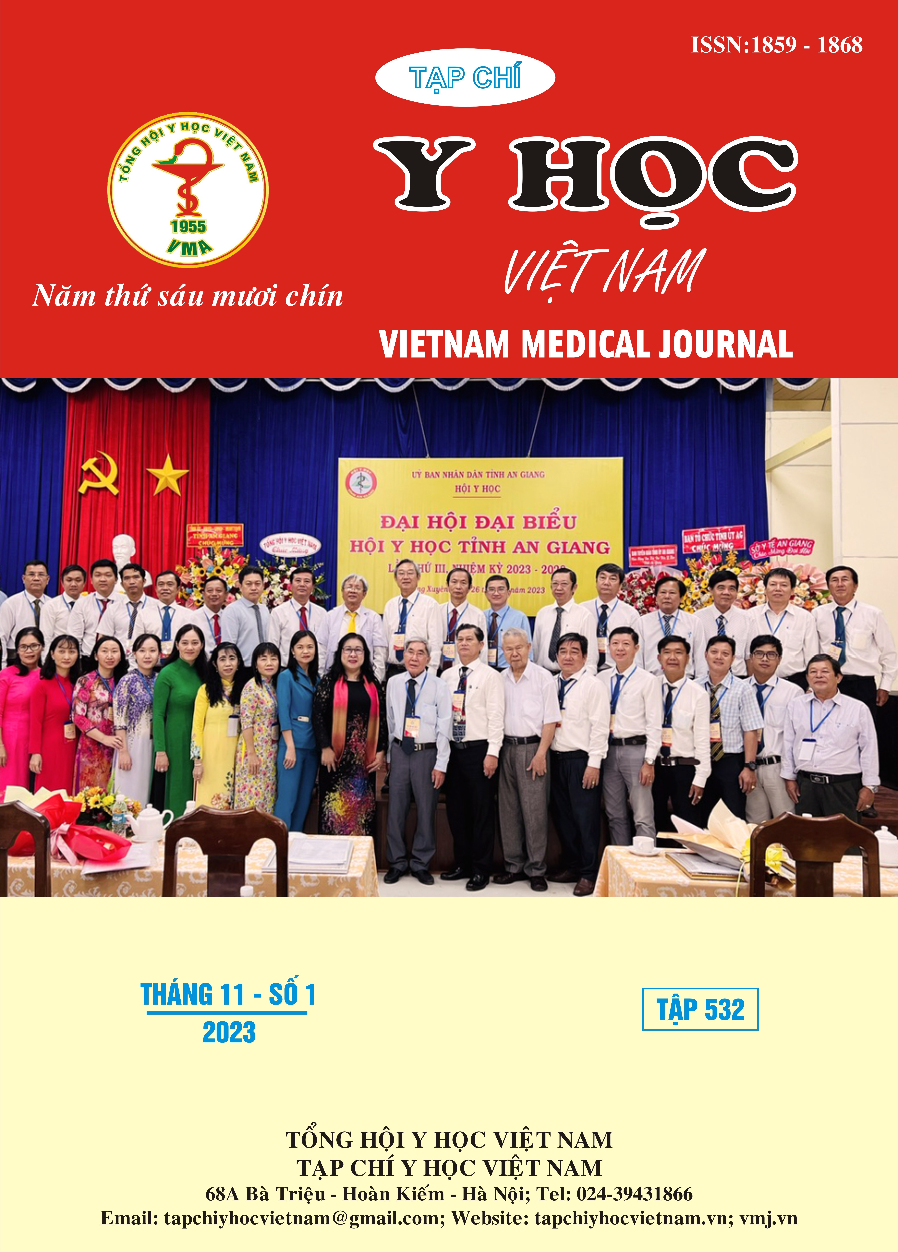CHARACTERISTICS AND OUTCOME OF TREATMENT FOR POST-ACUTE COVID-19 PERSISTENT COUGH
Main Article Content
Abstract
Background: Post-acute COVID-19 persistent cough is one of the prevalent respiratory symptoms that affect patients’ physical and psychological well-being. Objectives: The study aims to descibe patients and assess the effectivenes of treatment for post-acute COVID-19 persistent cough. Materials and methods: The cross-sectional descriptive study was conducted in 203 patients ≥ 16 years old with prolong cough lasting ≥ 4 weeks and a history of past COVID-19 infection. Patients recorded clinical and subclinical signs and evaluated results after two weeks of treatment at the Respiratory Unit - Can Tho University of Medicine and Pharmacy Hospital. Results: In terms of clinical characteristics, the mean age is 38.39 ± 15.72, smoking accounts for 5.91%, the prevalent comorbidities are hypertension 26.60%, cough symptoms in the acute phase are 76.85%, the average negative duration of COVID-19 test is 7.88 ± 3.445 days. The features of post acute COVID-19 persistent cough include a dry cough in 62.07% of cases, a cough lasting over 8 weeks in 55.17% of cases and fatigue accounts for 58.62% of accompanying symptoms. In terms of subclinical characteristics, the majority of patients have subclinical conditions within normal limits, with no correlation between chest X-ray imaging features, leukocyte indices, NLR, PLR, LMR ratio and pulmonary function test and cough duration. Highlights up to 20.77% of patients had eosinophils increased > 0.4 G/L and 19.44% patients with positive bronchodilator responsiveness test (strong positivity rate accounts for 16.66%). 85.21% of patients responded to treatment, improving symptoms according to the cough severity VAS score (p < 0.01). Conclusion: Post acute COVID-19 persistent cough is common in young people, with few comorbidities, characterized by eosinophilia, and positive bronchodilator responsiveness test. The majority of patients who respond to treatment are assessed by cough severity VAS score.
Article Details
Keywords
persistent cough, post acute COVID-19, cough severity VAS score
References
2. Cenko, E. và các cộng sự. (2021), "Cardiovascular disease and COVID-19: a consensus paper from the ESC Working Group on Coronary Pathophysiology & Microcirculation, ESC Working Group on Thrombosis and the Association for Acute CardioVascular Care (ACVC), in collaboration with the European Heart Rhythm Association (EHRA)", Cardiovasc Res. 117(14), tr. 2705-2729.
3. Guan, Wei-jie và các cộng sự. (2020), "Clinical Characteristics of Coronavirus Disease 2019 in China". 382(18), tr. 1708-1720.
4. Hernández-Aceituno, A., García-Hernández, A. và Larumbe-Zabala, E. (2023), "COVID-19 long-term sequelae: Omicron versus Alpha and Delta variants", Infect Dis Now. 53(5), tr. 104688.
5. Irwin, R. S. và các cộng sự. (2018), "Classification of Cough as a Symptom in Adults and Management Algorithms: CHEST Guideline and Expert Panel Report", Chest. 153(1), tr. 196-209.
6. Kang, Y. R. và các cộng sự. (2023), "Clinical Characteristics of Post-COVID-19 Persistent Cough in the Omicron Era", Allergy Asthma Immunol Res. 15(3), tr. 395-405.
7. Luo, H. và các cộng sự. (2019), "Normal Reference Intervals of Neutrophil-To-Lymphocyte Ratio, Platelet-To-Lymphocyte Ratio, Lymphocyte-To-Monocyte Ratio, and Systemic Immune Inflammation Index in Healthy Adults: a Large Multi-Center Study from Western China", Clin Lab. 65(3).
8. Martin Nguyen, Allison và các cộng sự. (2021), "Validation of a visual analog scale for assessing cough severity in patients with chronic cough". 15, tr. 17534666211049743.
9. Moreno-Pérez, O. và các cộng sự. (2021), "Post-acute COVID-19 syndrome. Incidence and risk factors: A Mediterranean cohort study", J Infect. 82(3), tr. 378-383.
10. Song, Dae và các cộng sự. (2018), "KAAACI Evidence-Based Clinical Practice Guidelines for Chronic Cough in Adults and Children in Korea", Allergy, Asthma & Immunology Research. 10, tr. 591.


